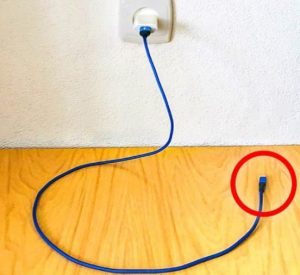If you’re anything like me, you probably have a list of little habits you’d like to change someday. They might not be outrageous or life-ruining, but they’re there—small things you wish you could tweak or stop doing altogether. And guess what? That’s totally normal. Everyone has something they’d like to improve about themselves. The challenge is that, sometimes, we simply ignore these habits or delay making changes because we don’t realize how they could impact our lives over time.

Some habits are deeply tied to addiction. Think smoking, drinking, gambling, or eating too much fast food. These can be incredibly tough to overcome because they often involve deeper psychological triggers or physical dependencies. But many other habits don’t fall into that extreme category. They stem more from routines or just plain forgetfulness. In those cases, the only thing really holding us back from change is our mindset or maybe just a lack of awareness.
Let me share a personal example. For the longest time, I had a weirdly persistent habit of leaving my phone charger plugged into the wall even when I wasn’t using it. I know—it sounds like a minor thing. You’re probably thinking, how hard is it to just unplug the charger when you’re done? And honestly, it’s not hard at all. It takes all of two seconds. But somehow, it became a blind spot in my daily routine.
My partner used to remind me constantly: “Hey, unplug your charger when you’re not using it.” And I’d always respond with a vague “Yeah, I’ll do it later,” only to forget again within minutes. It wasn’t that I didn’t care. I just didn’t see the harm. What could possibly go wrong if the charger was just sitting there in the wall, waiting for the next time I needed it?
Turns out, quite a bit.
I stumbled across a social media post one day that opened my eyes. It detailed the risks of leaving chargers plugged in when they’re not actually charging a device. I had no idea that something so small and ordinary could carry any real consequence. But the information changed my thinking—and my habits—almost immediately.
For one, chargers left in outlets still draw power, even when they’re not charging anything. The amount is small, sure, but it adds up over time. That means you’re using electricity without getting any benefit from it. In a world where we’re all trying to save money and energy, that’s not something to ignore.
More importantly, though, are the safety concerns. Even in standby mode, internal components within the charger can experience wear and tear from constant use. Sudden spikes in voltage, especially during a storm or power fluctuation, can cause overheating. In the worst-case scenario, this could lead to the charger smoking or even catching fire. While rare, these incidents are not unheard of, especially if the charger is cheap or damaged.
It gets even riskier if the charger is exposed to water or touches something metal. That could complete an electric circuit and create a real hazard. And if you have pets or small children at home, like I do, you’re adding another layer of risk. A child might see the dangling charger as a toy and try to yank it out or play with it. That’s not just dangerous for the child but could also damage the outlet or the charger itself.
Of course, it’s worth pointing out that the likelihood of a plugged-in charger causing a fire is extremely low. Modern devices are built with safety features, and today’s electrical systems are much more reliable than they used to be. That said, the risk still exists, even if it’s minimal. And the other downsides—like wasted electricity or accelerated wear—are still valid reasons to make a small change in your daily behavior.
At the end of the day, it’s about being aware of what we’re doing and why. Leaving a charger in the wall might seem like no big deal, but when you look at the broader picture, it actually makes sense to unplug it. Not only can you save a bit on your electric bill over time, but you can also avoid potential hazards that might arise down the line.
Since I made the conscious decision to start unplugging my charger after every use, my partner has stopped giving me those gentle reminders. That alone is a win. But more importantly, I feel better knowing that I’ve eliminated one unnecessary risk from my household. It’s one of those small wins that feels surprisingly good once you’ve made the shift.
So now, whenever I finish charging my phone, I automatically unplug the charger. It’s become second nature. And it serves as a great reminder that sometimes the smallest habits—those we barely think about—can be worth adjusting for the sake of safety, energy efficiency, and peace of mind.
What about you? Do you usually leave your charger plugged into the wall even when it’s not in use? It’s one of those things most of us do without a second thought. But once you learn more about the hidden costs and risks, you might find it’s worth making a change too. After all, better safe than sorry.





